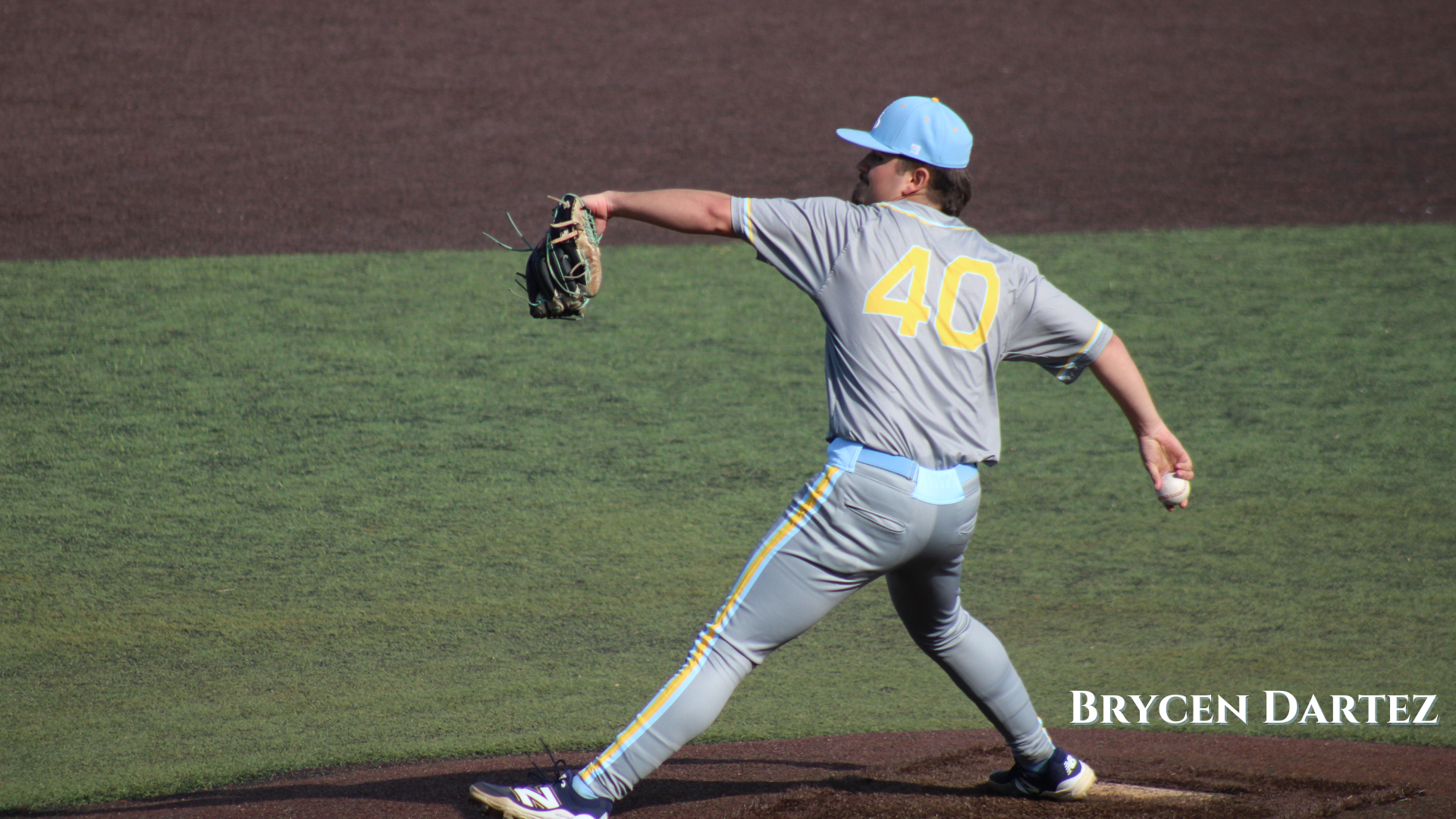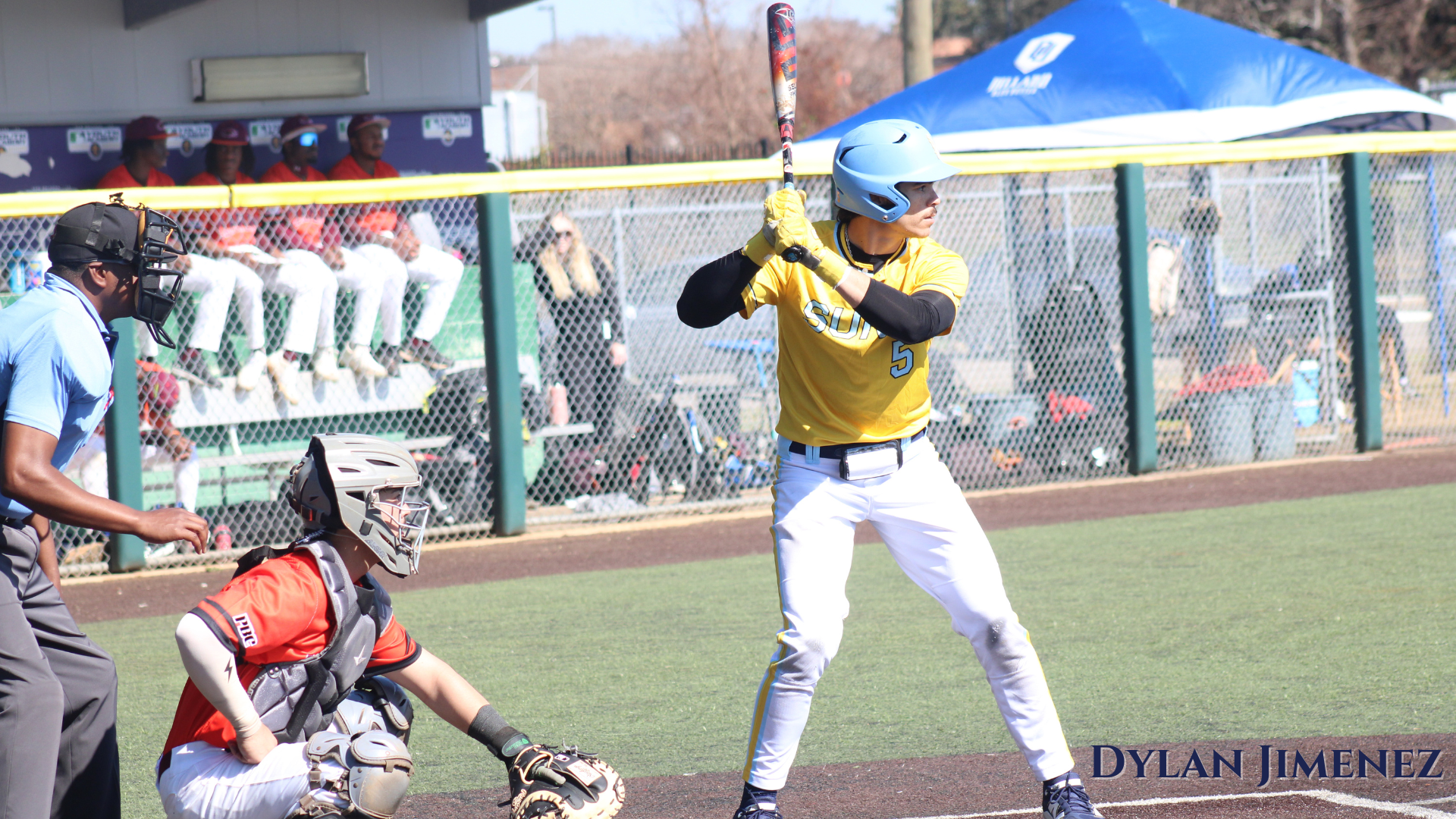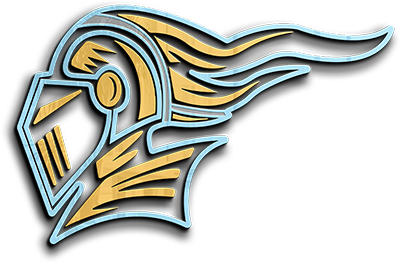SUNO Baseball knocking on the door of a conference championship in just its second season as official varsity sport
Written by Dani Wright
Southern University at New Orleans (SUNO) Baseball is midway through its regular season schedule and sits in first place in the HBCU Athletic Conference West Division. The Knights are 12-10 (10-2), and have shown that last year's new kids on the block have become this year's championship contenders. After finishing the 2024 season 12-8 in conference play, SUNO Head Coach Olen Parker, Jr. knows the 2025 Knights are a special group of players. A group that has fans talking about a conference championship in just their second season as an official varsity sport at the school.
The Knights' offense is being led by third baseman Damian Lantigua, who is No. 4 in the HBCUAC, hitting .441. Miles Bowens is No. 5 in the conference with five homeruns this year. Also making strong contributions is Dylan Jimenez, who was recently named conference Player of the Week after going 6-for-7 at the plate in three games against Philander Smith University. He had six runs batted in, one home run and scored six runs. He also did not strike out in his seven at-bats. Jimenez was perfect in the field, making nine putouts and assisting on a double-play.
The Knights are batting .313 as a team and reach base at a clip of .437. They've clocked 188 hits, 58 extra base hits and have been walked 114 times this year. Their pitching corps is No. 3 in the conference with a 6.58 ERA.

Ahead of their conference matchup against Stillman College, we chatted with Parker and SUNO Director of Athletics James A. Matthews, III about this program – from this year's success to what it will take to sustain the program for years to come.
With a 10-2 conference record at the midway point, what do you believe has been the biggest factor in the team's success so far?
Parker: Our guys can score runs multiple ways. I think in these 10 wins, we had timely batting with runners in scoring position. We played great defense with very few errors. Our pitchers also did well filling up the strike zone.
Matthews: Coach Parker has done a phenomenal job establishing a culture of discipline, hard work, and accountability within the program. This 10-2 start is a testament to his leadership and the relentless effort of our student-athletes. It shows that SUNO Baseball is not just competing—we're building something special. The team's growth reflects the dedication to excellence that we expect across all SUNO Athletics programs, and it's exciting to see them making such a strong statement in conference play.
You brought in an impressive recruiting class with 70 new players this season. How has that influx of talent helped shape the team's dominance?
Parker: Every year you have to replace players and reshape the roster to be better than the year before. With this recruiting class, we had a strong mix of older players who have played college baseball, and some young players, freshmen, coming out of high school that are settled into only being pitchers. I think that mix is paying off quite well.
Matthews: Having the right resources is critical. Recruiting and developing top-tier talent requires investment in scholarships, facilities, equipment, and travel—elements that directly impact our ability to compete at the highest level. With 70 new players stepping in and contributing immediately, it's clear that we have the ability to attract high-caliber student-athletes. Now, our focus must be on sustaining that momentum by ensuring they have the support they need to grow and succeed, both on the field and in the classroom.
Losing your top three players from last season was a big challenge. How have the new additions stepped up to fill those key roles?
Parker: We actually lost four all-conference players in pitcher Noah Ramirez, shortstop D'Eric Shenault, centerfielder Chase Lovick, and starting catcher Caden Cantu who was out for the first half of this season. Despite losing these players, our returners and new players created a lot of optimism of what this year's team would look like. These guys have done a wonderful job in replacing the all-conference players we lost.
What was your approach to recruiting this past offseason, and how did you identify players who would make an immediate impact?
Parker: Well, the approach every year for our staff is the same. You have to be strong up the middle and on the mound. We had Kyler Shepherd move from leftfield to centerfield. Honestly, he could have started at centerfield last year.
Enrique Herazo saw action at shortstop and he's having a great season so far – a golden glove season, really. He was a freshman last year, which gave him a full season to learn the positions (pitcher and shortstop) and how to play college ball period.
Our biggest surprise came in the two young catchers we brought in – Jose Gonzalez and Avery Spriggs. These two have done an outstanding job for us and really understand the game.
We returned Joey Olveda, our number two pitcher, and have 20 other pitchers that bolster our pitching corps.
How have the new players adapted to your system and the demands of playing at SUNO?
Parker: The new players have all brought great talent and a high IQ for the game, especially Kerrigan Edmondson, Dylan Jimenez, and Mikel Black. They've all contributed to building the SUNO brand of baseball. They show up early to assist the younger guys with batting and field, and they teach them how to respect the game of baseball. When we were recruiting for this season, we focused on players who not only knew the game, but they also knew we would do better if every player knew their role, knew their position, and knew how to make plays. We recruited more leaders, and that strategy is paying off for us in a big way.

What contributions have you seen from your coaching staff in developing this new roster into a cohesive, winning team?
Parker: I have an incredible coaching staff. I am really fortunate to work with this crew. Each one of them has superb knowledge of the positions they coach and have a great relationship with their position players. Associate Head Coach Alvin Robinson spearheads a lot of our activities and has been invaluable to our growth and success. Building a winning team starts with having competent and passionate coaches, and I'm grateful to have that in my guys.
Which returning players have stepped up as leaders to help integrate the new recruits and maintain the program's standard of excellence?
Parker: I have to give a lot of credit to Damian Lantigua, Brandon Watson, Enrique Herazo, Miles Bowens, and Kyler Shepherd. They've stepped up and guided this team to where we are. They've put the team on their backs and carried us on and off the field, and that's something you cannot force. It comes naturally to them.

With so many new faces, how have you managed to build team chemistry so quickly?
Parker: We've developed a system of good habits that winning teams use to become champions. We believe you practice like you're playing the game. Our players challenge each other, so there's an understanding that we are all accountable for our shortcomings and our success. We focus on changing our shortcomings into success, and that takes the effort of all players and coaches.
Looking ahead, what will be the key to sustaining this momentum and finishing strong in the conference?
Parker: The key to us sustaining momentum in conference play and finishing strong is to get more consistent with our starting pitchers. We have to go into every game knowing we will come out with a victory, no matter what the score is. We're committed to winning every series we play.
For potential recruits watching this team's success, what would you say to them about the culture and future of SUNO Baseball?
Parker: SUNO Baseball is a hybrid program. What that means is we have NAIA affiliation, but an NCAA Division I resemblance. The future of SUNO Baseball is bright, so if you think you have what it takes to be a Knight, contact us.
We closed our discussion with AD Matthews to get a better understanding of what it takes to support and sustain a successful athletics program at SUNO.
What role does financial support play in sustaining the success of SUNO Athletics, particularly for programs like baseball that are proving they can compete at a high level?
Matthews: Financial support is the backbone of our ability to compete and grow. Our baseball program is proving it can win, but to sustain this success, we need continued investment in scholarships, training resources, and operational costs. Funding directly impacts our ability to schedule competitive matchups, upgrade facilities, and provide a first-class experience for our student-athletes. The reality is, to remain competitive, we must continue building a strong foundation of financial backing.
Beyond wins and losses, how does investing in the baseball program contribute to the overall mission of SUNO Athletics in developing student-athletes on and off the field?
Matthews: SUNO Athletics is committed to developing student-athletes who excel not only in their sport but in life. Investing in our baseball program means giving these young men the tools to succeed academically, grow as leaders, and serve their community. The lessons learned through teamwork, discipline, and perseverance extend far beyond the diamond. Our goal is to graduate well-rounded individuals who leave SUNO prepared for success in their careers and as contributors to society.
For alumni, fans, and potential donors who see this team's success, what message do you have about how their support can help elevate SUNO Baseball to even greater heights?
Matthews: Fan support makes all the difference. SUNO Baseball is proving that we belong among the best, and with your help, we can continue elevating this program to new heights. Every contribution—whether it's through donations, sponsorships, or simply showing up to support the team—helps provide the resources necessary to recruit top talent, improve facilities, and ensure our student-athletes have every opportunity to succeed. This is just the beginning, and with your continued investment, the sky's the limit for SUNO Baseball.
